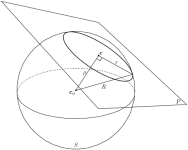skepticalbip
Contributor
- Joined
- Apr 21, 2004
- Messages
- 7,304
- Basic Beliefs
- Everything we know is wrong (to some degree)
Thanks. That makes your acceptance of reality a little clearer. So, for you, it is personal experiencing and a democratic agreement of those you trust.Oops! Apologies for the mis-attribution. Too many late nights...will fix this in the next post.
You are still using special pleading (a logical fallacy) for spacetime. How do we know anything actually exists (even your desk chair, stars, the moon, etc.) other than through our sense/cognition? You seem to be asking how we know it exists other than by our sensing and understanding it but you don't ask that of your desk chair, stars, the moon. etc This is why I asked you for your criteria for knowing anything exists - but you still refuse to tell me. So I don't know what would convince you that we know spacetime exists as well as we know that anything else exists.
Well, you still haven't answered my question. But ok, I'll answer yours. There is no fool proof way of deciding on a criteria for what "exists" and avoiding solipsism completely so the best we can do is rely on inter-subjective consensus (between several or many individuals) via sense-perception and cognition, which I see as the basis of empiricism. I see a chair. My friend sits in the chair and so we both acknowledge that the chair "exists" (as an object of sense and cognition). I don't see where you are seeing a logical fallacy...can you try to point it out more clearly?
Spacetime has at least three dimensions. Einstein described four. We have measured the bending of this "fabric" in a hell of a lot of tests. The twisting and dragging of this "fabric" has been measured. The fact that this "fabric" is a medium that supports the propagation of gravity waves has been shown.Now, could you answer my question: Is 3 dimensionality a property of spacetime (independent of human sense and cognition) or a property of the representation of space time as it appears to humans through sense and cognition. A simple boolean answer would suffice and keep it simple so we can take this step by step.
But then since you haven't sensed it yourself and probably none of those you trust will vote for it existing, you will be unlikely accept the scientific necessity, scientific understanding, scientific testing, and scientific detection of spacetime. Never mind that the satellite GPS system wouldn't work without our accounting for the effects of spacetime - you can just consider that to be magic.
But then you apparently accept that particles and atoms exist even though you have never experienced them yourself so have to trust the understanding of science. You apparently accept that stars exist but can only detect points yourself so have to depend on science to explain their reality as physical objects that are gigantic balls of plasma undergoing ans sustained by nuclear fusion. There is a hell of a lot that you must rely on science to understand that it exists since you can not sense it yourself. No one has ever "seen" a radio wave so any understanding we have of their existence can only come from science's understanding of reality.
ETA:
Maybe an understanding of what you define as existing would settle the whole confusion. Is your definition of "existing" such that only Fermionic matter exists? If so then you are missing the overwhelming majority of the universe. By this weird definition, spacetime wouldn't exist. Earth's magnetic field that protects us from deadly solar radiation wouldn't exist. Much of the solar radiation wouldn't exist. The principle that drives electric motors wouldn't exist. Gravity itself wouldn't exist. etc. etc.
Last edited:

